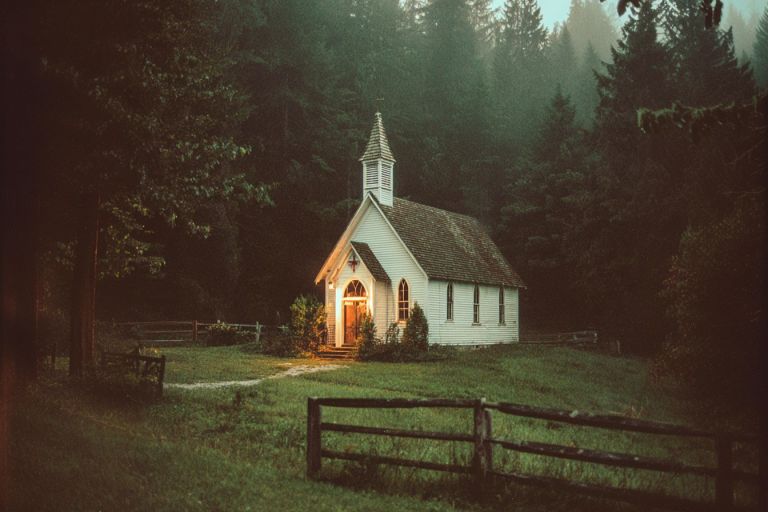
How To Find Inner Peace, Because Your Mind Will Be A War Zone If You Aren’t Connected To Your Center
Inner peace is the state of being connected to the deep internal knowing that everything is okay, and always will be. The concept of finding one’s “inner peace” has been part of spiritual and metaphysical practices for centuries, and has just recently become more mainstream with the development of popular psychology.
Albert Camus once said: “In the midst of winter, I found there was, within me, an invincible summer.” That sums up the entirety of what inner peace really is: the understanding that no matter what is happening around you, there is a place of total knowing and calmness within you. Not only are you capable of returning to that place when you need to, but it’s possible to live your entire life from there. The challenge is learning how to connect with it in the first place and learn to rewire how you respond to your monkey mind, which is always jumping from one worst case scenario to the next.
You know when people reference knowing something “deep down?” They say things like: “I’m worried, but deep down, I know it’s going to be okay.” Or, “I’m angry at him, but deep down, I know he loves me.” What do you think they are referencing? Where is deep down? They’re talking about the place within them that has an infinite wisdom, a better understanding, and a more insightful perspective of what’s going on. It isn’t shaken by the stressors or fears that the mind wants to offer.
So much of the process of finding inner peace is being able to get to that “deep down” place where you know and feel, that ultimately, everything will be okay.
There’s another metaphor in meditation in which calmness is compared to steadying a lake or a large body of water. Your thoughts and actions are like stones in the water: they create a ripple effect. The point of meditation is to make yourself quiet enough so that the water comes back to its natural stillness. You don’t have to force the water to be still. It does it on its own when you stop interrupting it.
The same goes for finding inner peace. It’s not so much something you have to create as it is something you have to return to.
The goal isn’t happiness.
One of the most important parts of discovering your inner peace is that you trade in your desire for “happiness.”
Unfortunately, happiness is fickle. It can lead you to being unhealthily attached to certain achievements, belongings, or specific circumstances. It can lead you to become dependent on other people’s opinions, or life unfolding in a particular way. When your goal is happiness, you will always find just behind it a lingering sense of unhappiness – that’s how balance and duality works. Inner peace, however? That’s the state in between the scales. When it’s your goal, there’s no way to lose.
“We don’t realize that, somewhere within us all, there does exist a supreme self who is eternally at peace.” – Elizabeth Gilbert
This is difficult for most people, and often, people will continue to create stress, problems, and drama for themselves because their egos are still very much attached to thinking they need some kind of external thing to make them feel good. This is the quintessential sign of someone who has not yet found their inner peace: they are searching, often rapidly, for a sense of satisfaction, belonging or worthiness outside of themselves.
So really, it’s not that happiness isn’t a virtuous thing to which you should aspire, or that happiness isn’t something you’re ever allowed to feel. The reality is that inner peace is the true happiness, and everything else is just a false means of trying to convince yourself that you are “okay.”
Think about it this way: What do you typically imagine will bring you happiness? Money, a relationship, a promotion? What happens when you achieve those things? Consistently, throughout all of humankind, the answer is the same: you return to your baseline. This is because this kind of happiness is not real. It is only being completely at peace with whenever you are in any given day that you will find a genuine sense of wonder, presence, and joy.
What drives us away from inner peace in the first place?
With all this talk of how we have to “come back” to our place of inner peace, it brings up the question of why we ever got disconnected from it in the first place. This is important because understanding why we lose it is fundamental in finding it again.
When we grow up, we adapt to our environments. We adopt the beliefs and ideas of those around us. We alter our personalities so that we become safer, people we believe can’t be hurt by the world. When we are children, we are more vulnerable than ever, and it’s in this time that we pick up what can easily become lifelong coping mechanisms.
If we are not instructed from a young age to connect with our inner sense of peace, we will instinctively begin to trust the voice in our head. This is where we really get lost, because the thoughts that we have on any given day are largely the product of what the Buddhists would call the “monkey mind,” or as a neurologist could explain it, the process of different receptors firing off and making associations with things, that may or may not have anything to do with reality.
When we begin to trust our thoughts, we let them inform our feelings. This becomes a cycle, and ultimately traps most people who aren’t aware that it’s happening. They have a weird or scary thought, have a subsequent strong feeling, and the combination of the two makes the situation feel real when it’s actually just a misunderstanding of your neurological process.
Of course, that doesn’t mean that our thoughts are useless. It just means that they are not always reflective of reality, and should be used as more of suggestions than anything else.
Why can’t people find their inner peace easily?
The answer is that they can, most people just aren’t instructed on how to. But beyond that, most people are actually too scared to go into their own feeling states, because their inner child is too traumatized.
Everyone has an inner child, it is the part of you that is most innocent and pure, and it never goes away. Over time, it is your responsibility for you to learn how to parent this inner child, who will honestly be the one to push you away from your inner peace. They will be the one to throw a tantrum and tell you that everything is falling apart and that you’re going to die and that you should just give up.
In the same way that you wouldn’t let a child run your waking life now, you can’t always believe what your inner child is afraid of. You can, however, learn to work with them, heal them, and make them feel safe… in the way any good parent would.
Dr. Stephen Diamond explains it like this: “To begin with, the inner child is real. Not literally. Nor physically. But figuratively, metaphorically real. It is, like complexes in general, a psychological or phenomenological reality, and an extraordinarily powerful one at that.” He argues that mental disorders and destructive behavior patterns are usually more or less related to unconscious parts of ourselves, and were most often adopted in early life.
Finding your inner peace is finding your inner warrior.
Finding inner peace isn’t always so much about just sitting in the lotus position until wisdom becomes you, it’s about making the uncomfortable decision to stay with your discomfort, and to choose differently regardless.
As Gail Brenner explained: “The inner war is perpetuated by resistance – that is, not wanting to feel the way we feel, not wanting people to do what they are doing, not wanting events to occur as they are occurring. Resistance wants to rewrite our personal histories and ensure that our plans materialize.” She argues that inner peace is the only kind that exists because nothing else is in our control:
“There is only one kind of peace, which is inner peace. Why? There is no “outer peace” because we are not in charge of the circumstances of our lives. We cannot design the world to our liking or even control our own thoughts and feelings. Peace is not to be found in any temporary arising; that is, anything that comes and goes, which includes events, people, objects, thoughts, emotions, etc. If we stake our happiness on things that are temporary, what happens when they appear or disappear? There goes our happiness. This truth begs the essential question: Do you want passing happiness or enduring peace?”
Another really amazing way to find your inner peace is to consistently remind yourself that your worries are a fabrication of your mind’s need to identify potential threats to survival, and your true happiness is being here, in the moment. If that’s hard to believe, make a list of the following:
– Everything you have intensely worried about in your life. Go back as many years as you can, and be as detailed as you can.
– Every difficult situation you swore you would never get through, or never get over.
– Every time you have genuinely felt happy and at peace.
Guaranteed, your responses to the first will bring a smile to your face in that they will remind you that you have worried constantly in your life, and yet they were all unfounded. Often, the things you worried about most were actually the things that were going to turn out the best. By the nature of duality, the very virtue of experiencing fear of them means you also experienced love from them.
Your response to the second will also be relieving, because it will show you just how much pain you thought was insurmountable in your life, and how, in retrospect, you don’t really ever think about those things anymore. Finally, your answers to the last question will remind you that your happiness has never come from things being perfect on the outside, but from you being present and open and connected to yourself, and to the moment.
Worrying is an addiction.
In the same way that it’s easy to become addicted to substances or behaviors that allow us to avoid the present moment, worrying is chief among the coping mechanisms people use to distract themselves from what really matters.
Over time, you have begun to convince yourself that worrying = being safe. You think that by running worst case scenarios through your head again and again, you will be better prepared for them. This is completely false. Not only are you draining your energy imagining situations that 99.9% of the time are completely manufactured, but when you are already hypersensitive to any one of these fears or ideas, you will actually create those circumstances simply out of your avoidance or over-responsiveness to them.
You have to remember that among all the things to know about the monkey mind, your head wants to constantly seek out situations and experiences that will affirm itself. If you believe something will be good, it will be. It might not look exactly how you imagined, but the outcome will be exactly what you expect.
Finding your inner peace is just connecting to your deepest wisdom. It’s not something you have to create, justify, imagine, or reach for. It’s always within you, it’s always an option, and it’s constantly a choice. You just have to make it.
Your feelings are not always facts.
The most challenging part of all of this is arriving at a place where you can discern between which feelings are instinctive and informative, and which are rooted in fear and ego.
In a world that constantly tells you that your gut knows everything, and that your feelings are real, and that, hell, if you reach in deep enough, you’ll uncover a well of wisdom that can guide you… it can be really easy to assume that every feeling and idea we have is not only real but is somehow forecasting what’s going to happen in the future.
Your feelings aren’t predictions. They are not fortune-telling mechanisms. They are only reflecting back to you what your current state of mind is. It’s like having a nightmare: the monsters aren’t real, but they could be metaphors for something you’re worried about in your waking life.
What holds so many people back from finding their inner peace is the fact that they can’t tell the difference between whether their fear is correct, or their peaceful feeling is correct.
Remember this: The feeling of peace is the one telling you the truth.
Your feelings aren’t here to tell you what’s going to happen. They’re only here to inform you of where you are at energetically and mentally, and how you should respond to what happens around you. Fear is trying to scare you into staying small and keeping safe. It is a mortal, limited thing. The feeling of peace is trying to remind you that everything will be okay because it always is… and always will be, no matter what. ![]()











